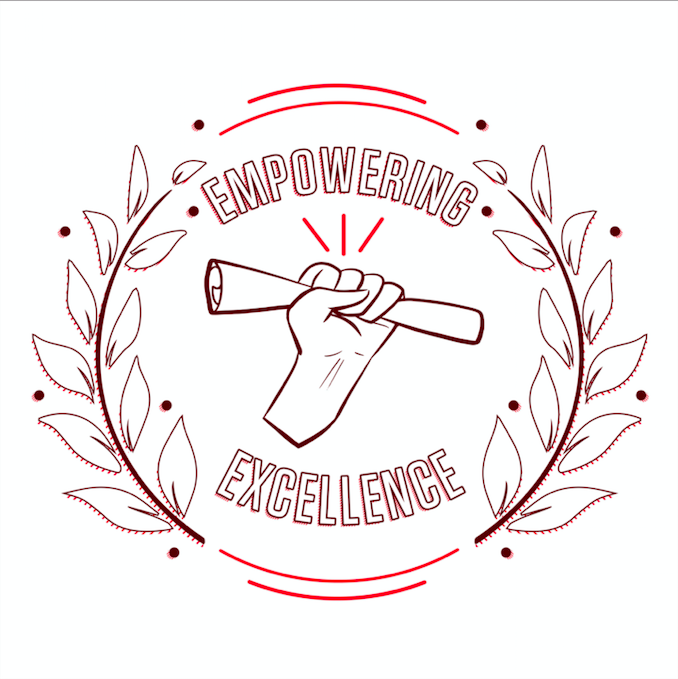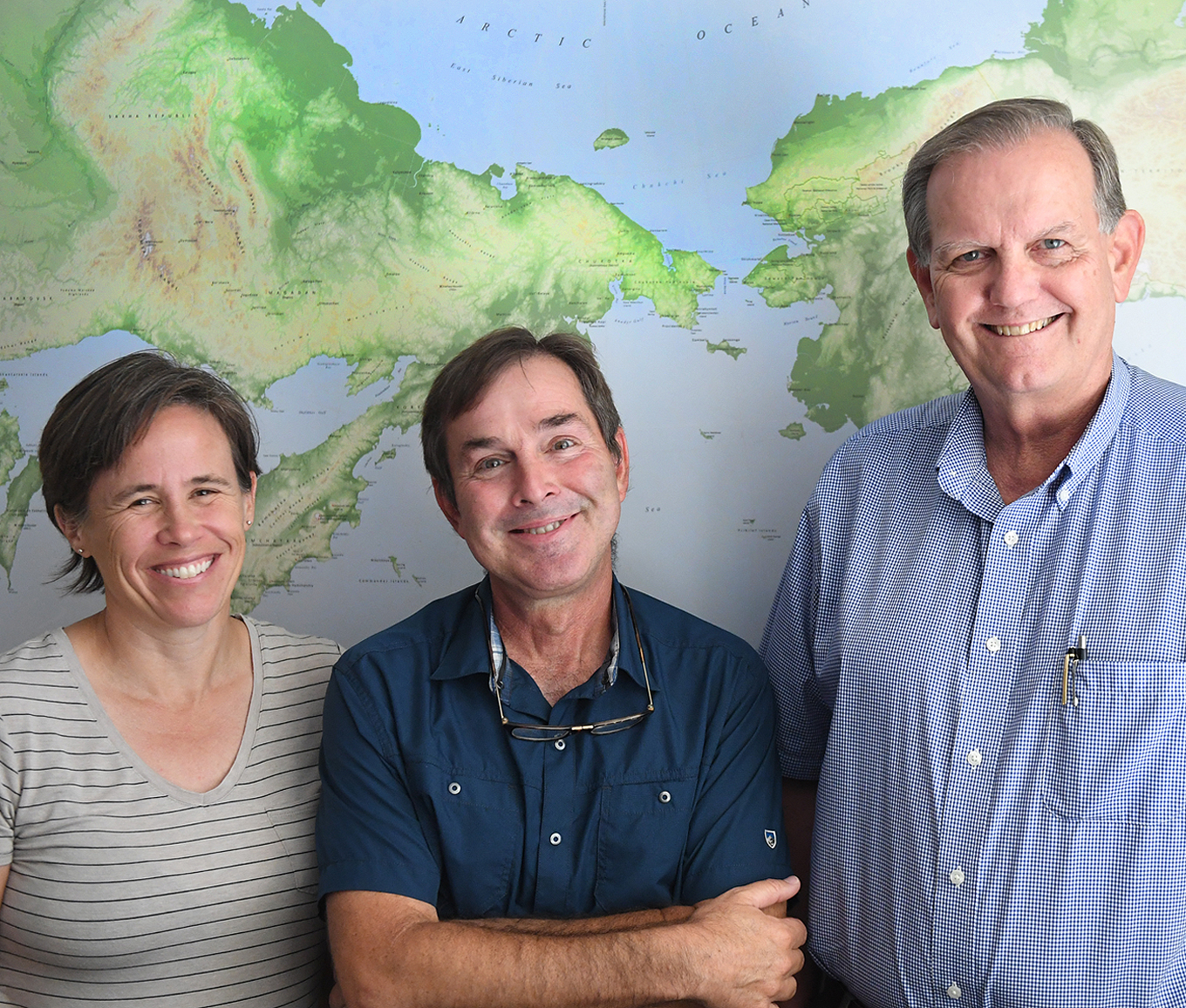Center for the Study of the First Americans: Empowered to Excavate Our Past
Faculty and students at the Center for the Study of the First Americans are empowered by donors to answer timeless questions about the first Americans.

By Rachel Knight ’18

From left to right: Kelly Graf, Ted Goebel and Michael Waters of the Center for the Study of the First Americans, stand in front of a map showing where modern man crossed over from present day Siberia to North American while standing in their offices at The Anthropology Building on the A&M campus.
Tap into your imagination. You’re tracking the migration patterns of people at the end of the Ice Age. Colleagues surround you during an archeological dig. As you unearth new artifacts, you can’t help but wonder what further examination of your findings will reveal about the Americas at the end of the Ice Age. Who were the first people to enter the Americas? Where did they come from? How did they settle into their new surroundings and adapt to rapidly changing climates and environments? The only way to find out is to continue your work with the Center for the Study of the First Americans (CSFA).
The CSFA is one of many innovative programs in the College of Liberal Arts at Texas A&M University. Faculty and students conduct excavations, date archaeological sites, study artifact collections and ancient DNA, and analyze plant and animal fossils as they answer timeless questions about the first Americans.
Though the research and work done at the CSFA is profound, like all programs in the college, none of its successes would be possible without the support of dedicated donors.
“Endowment funding allows researchers to take chances and think outside the box,” Michael Waters, CSFA director said. “Thanks to [donor] generosity, the Center has proven that people entered North America about 15,000 years ago and continues to answer questions about who the first Americans were.”
While the CSFA focuses on researching, educating, and informing both the public and professionals about the first Americans, other college programs support things such as first-generation student success, humanities research and education, global education, and much more.
“Most of the discoveries, like the ones made by the CSFA, that are changing our field have been funded by endowments, not granting agencies,” Waters explained. “Thank you for investing in important discoveries.”
